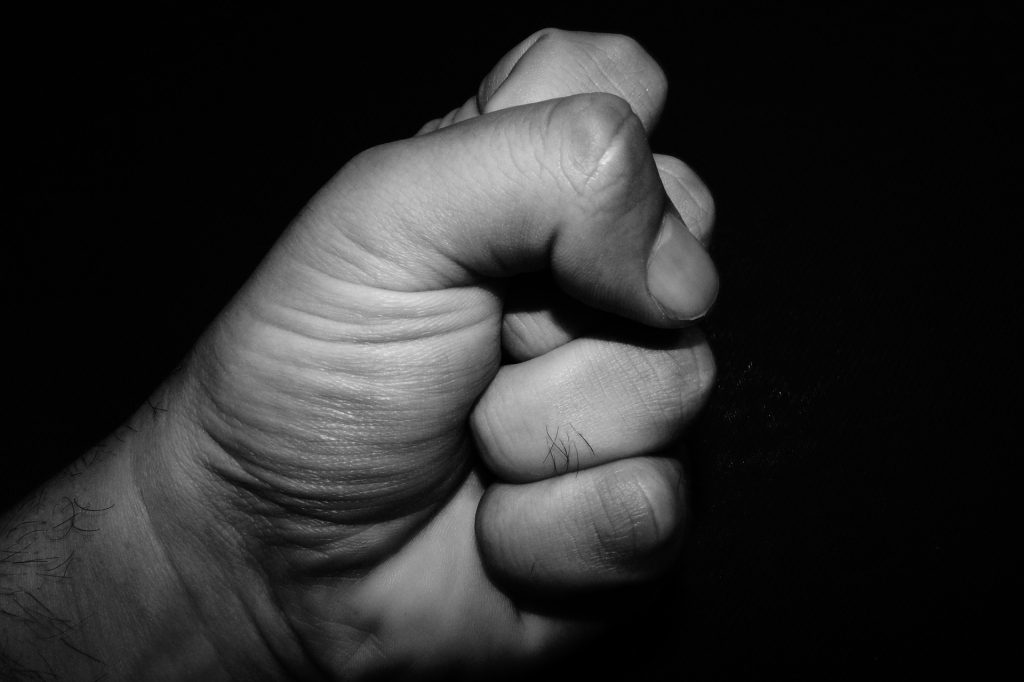I don’t think most people would expect to find philosophical reflections in a novel such as the “Hunger Games”, but I find that fiction novels sometimes have the best philosophical musings. Through reading this novel and my reflections, I have come across the question of whether or not humans are inherently violent. My original answer to the question would’ve been “No, we aren’t”. And this answer would have been due to my upbringing. Raised with the idea that violence had no justification and was never the answer, I believed I never got the urge to cause someone else pain. Yet as I reflected, I acknowledged that in moments of anger and frustration, I did feel the desire to respond with violence. This revelation prompted a revaluation of my initial stance, guiding me to reflect on the origins of these impulses and leading me back to the “Hunger Games”.
Suzanne Collin’s dystopian series unfolds in Panem, a society born from the ashes of the United States. The novels take place after there has been an uprising of rebels in the country, in protest for the terrible conditions that they lived in. After the war, the government began to hold an annual competition that forced randomly selected children into a brutal fight to the death. While intrigued, I always thought of the Hunger Games as an exaggerated scenario; the concept of holding such an event didn’t make sense.
However, this year I read the “Ballad of Songs and Birds”, where I gained insight into the early life of President Snow, the enforcer of the Hunger Games. After the war in Panem, Snow and his family became extremely poor, yet because of the fame that his father had before passing, Snow is able to attend a prestigious Academy. At one point in the novel, he is sent into the arena to retrieve a fellow student who for reasons I won’t delve in, went inside whilst the Hunger Games were going on. As Snow and his friend are trying to leave the arena, some of the tributes begin to chase them. Snow, in a panic to survive, kills one of them. When he escapes the arena, Dr. Gaul, overseer of the Hunger Games, chillingly unveils her view on humanity, stating the following:
“What happened in the arena? That’s humanity undressed. The tributes. And you, too. How quickly civilization disappears. All your fine manners, education, family background, everything you pride yourself on, stripped away in the blink of an eye, revealing everything you actually are. A boy with a club beats another boy to death. That’s mankind in its natural state.”
After reading him, I was repulsed. How can someone say that in our “natural state”, we are killers? That we inflict pain upon others and that is who we truly are? However, I was soon grabbed by the uncomfortable truth woven into Dr. Gaul’s words. I thought about a belief that I have had for years now: humans, at their core, love and crave control. I would even argue that most of the things we do revolve around trying to keep that control or at least a sense of it. But where does this desire for control stem from? I think it depends on the situation. But in this specific case and at a more basic level, Snow’s act of violence stems from the fact that he had a very tumultuous and unsafe uprising. His instincts drove him to secure safety, no matter the cost.
This perspective reshaped my understanding of the Hunger Games. Beyond being a tool for fear and punishment, it is a means for the Capitol to reinforce a sense of security. It is a symbolic reminder that in the absence of control, the pretense of civility and honor can be stripped in a heartbeat as we recur to the most basic means of self-defense we have, revolving around violence.
So, are humans truly violent by nature? There is a nuanced answer that transcends simple affirmation. I contend that our inherent drive is not toward violence but rather toward control and security, driven by biological and survival instincts. However, staying in control can manifest in various ways, not only violence. The proof of this can be seen in society; if we were inherently violent, then the systems that we have in place would simply not function as they do. An example of this is a democratic government, which grants alternative avenues for individuals to feel in control of their future and the well-being of their country, without them having to resort to violence (or at least, in an ideal case).
In essence, I would say that no, humans are not inherently violent. What we are is innate control freaks, that when stripped away of the various means we’ve devised to maintain control, may resort to more primal methods such as violence.
